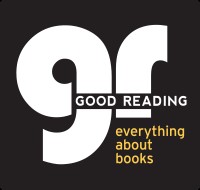
This Q&A was published in December 2013
A first-hand account of life in communist Romania.
Romania is a land of change and contrasts. How do you feel about your home country today?
I miss the mountains and the snow. I miss the sound of my mother tongue and the warmth of people. But I could never live there again.
Romania seems to me a country of missed opportunities. The government had been slow implementing the painful reforms needed for a Western style economy. Many Romanians leave their families to work in the west and send money home. Grandmothers trying to cope with teenage grandchildren was the topic of one of the reality TV programs in Romania.
Your memoir is a journey that many people from your region and period could relate to. Do you ever wish that you had a different history?
I do at times. But I do not feel sorry for myself, some people had far greater upheavals in life than me.
Other times I think that all those experiences have given me insights which I might not have if my life would have been less eventful. And for a writer every experience is a gift. Retrospectively.
The style of this memoir is written like it’s in the voice of a fictional character, why did you do that?
The memoir is told in a first person’s voice, apart from the parts when my brother Tom is recounting his story. But I did not just want to tell a story. I wanted to write literature, I wanted to convey the atmosphere of the times, the beautiful scenery, but also to breathe life into some of the colourful characters who at different times had shared our lives. So maybe it does read like fiction sometimes.
How did you feel about your brother’s choice (Tom) not to leave Romania with you?
At the time Tom was estranged from the rest of the family. Estranged or not, my feelings towards him did not change. But having waited for years to get out of the country, I could only think of the future. Besides, I was convinced that he would follow us eventually. Only years later I understood the full implications of his decision.
Did you write this book mainly to tell your brother’s story, or about your whole family?
My original intention was to tell my brother’s story. I soon realised that his was part of a much bigger story, that of the family, and of the ripples of history which affected our lives. I also wanted to tell the story of our emigration to Israel. What happened when after years of waiting for permission to emigrate, the country of our dreams met the reality of the Promised Land.
You wrote this book only a few years ago, and it’s well written. Why did it take you so long to write it, and have you always known you were a writer?
I always wanted to write. As a child I used to listen to Tom trying to memorise poems. I loved the sound of the words, the rhythms and as I got older and understood more, I loved the feelings expressed in those poems. So I wanted to be a poet one day. But life had other plans for me. We emigrated twice, I had to learn new languages. To write in a language you have to be able not only to speak and think in it, but feel in it, be affected by the meaning of the words. And that takes years.
Did getting this book down on paper release something you always wanted to say?
No, it did not. I just wanted to write, and to tell the story of a somewhat unusual family. But I am glad that some themes about which I feel strongly, and more so since I wrote the book, have found their way into it: belonging, identity and how history, or if you want to take the short view, politics, affect our lives.
Can you tell us about the work in scientific research you did?
This is a long story. My work evolved from Nuclear Magnetic Resonance Spectroscopy to researching the mechanism of deterioration of metals and finally to more applied projects in one of the biggest Australian companies. From improving or inventing new products and processes in the laboratory, to taking them into production.
Many people think that art and science are opposites, but scientific research involves lateral thinking and a great deal of imagination, the sort of thinking a writer depends on. Working in scientific research taught me a great deal about writing.
Do you feel that Australia is your homeland today?
Australia is definitely my homeland now. This is where my family and friends are and where thanks to our institutions I can negotiate life easily. I like the multicultural look of our streets and I hope that one day it will translate to the look of our leaders.
You have another book, a book of fiction sitting in your drawer; can you tell us about it?
It was my first attempt to write a novel. Having spent six months full time writing I became discouraged and started to apply for jobs. The book was finished that year, but its rightful place is in the drawer. I did not know at the time but I needed to learn a great deal more about the craft.
I am currently writing another fiction book. And this is a secret.
